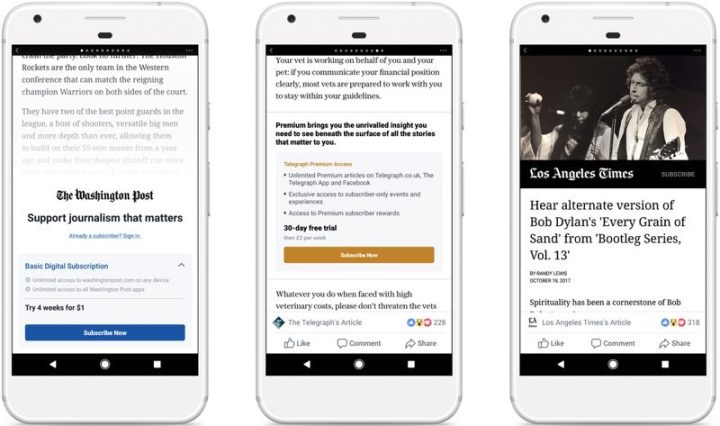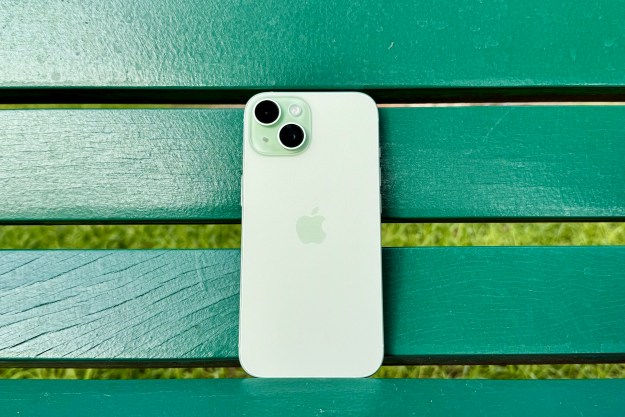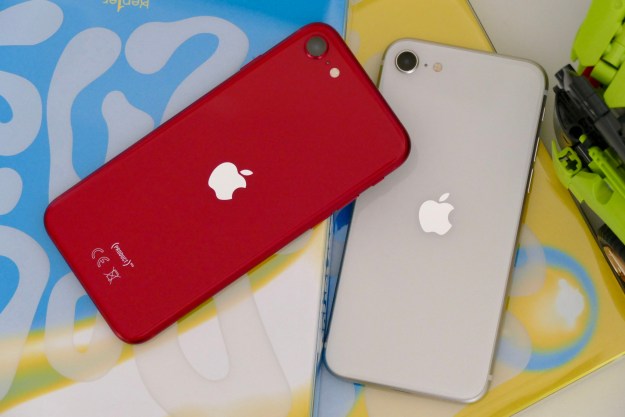
Facebook’s new subscription tool for mobile phones will roll out sometime in the next few weeks. It allows various publishers, such as the Washington Post or Hearst, to set two different types of paywalls around their articles. One is a “metered” paywall, which many publications use already. After reading a certain numbers of articles, you’re directed to their subscription page. The other is a “freemium” version, where publishers can set firewalls around individual articles. In both cases, the goal is to get you to subscribe. Facebook has already said it wouldn’t take any of the revenue generated, and that it won’t capture customer data that results from the transaction.
As MacRumors points out, there’s only one problem – Apple won’t play ball.
The two tech juggernauts have been going at this for months, say many industry insiders. In the end, it all comes down to money. Apple wants a slice of the pie – a fairly big slice – and, as a result, the new Facebook service will only premiere on Android devices when it launches.
Apple is demanding a substantial portion of any subscription fees generated by the new service. According to its own rules, the Cupertino company takes a cut of up to 30 percent on any revenue generated from “in-app“ purchases on its iOS platform. Facebook argues that it’s not an “in-app” purchase, as it takes place at the publisher’s site. Apple’s counter-argument is that since the transaction begins inside the app, it’s entitled to its slice. And so they go round and round.
The rule is in place to prevent a company from advising a user to leave the iPhone app and subscribe on the company’s own website, as a way of dodging the 30 percent Apple tax. Google has said it’s not taking any revenue from media subscriptions using the new Facebook feature.
According to Recode, Apple wouldn’t comment. Facebook wouldn’t comment either. This isn’t the first time Apple has struggled with publishers over its subscription rules, which date back to 2011, when everyone wanted to sell subscriptions to iPads. That never really panned out.
You’d think will all that money to be made, these two could play nice and come to some sort of agreement. After all, the tech companies may not have the upper hand for long, says the New York Times – news outlets are joining together in an alliance to ask Congress for an anti-trust exemption so they can bargain collectively against Facebook and Google.
Editors' Recommendations
- One of the most iconic iPhone accessories is back — and it’s great
- Are you having iPhone alarm problems? A fix is coming soon
- This one Apple Fitness feature completely changed how I exercise
- Nomad’s new iPhone case and Apple Watch band may be its coolest yet
- An Apple insider just revealed how iOS 18’s AI features will work


